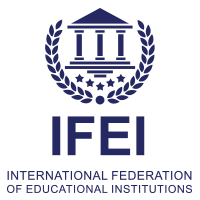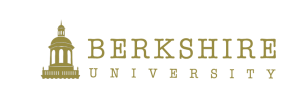Accreditation
Symbol of Global Recognition & Acceptance
Berkshire University continually strives to deliver high standards in online education to individuals around the globe. In order to maintain immaculate quality, Berkshire University adapts stringent processes for devising pertinent curricula, evaluation of students, and smooth sailing of the online education system.

Higher Council for Distance Education
HCDE is an independent, membership-based, non-profit organization dedicated to enabling all academic institutions in the world. It aims to promote effective educational practices in colleges and universities. HCDE is an international quality assurance organization, providing services to improve and maintain the highest quality standards in all academic institutions established all over the world.
HCDE provides international accreditation to academic institutions after a careful assessment of their overall performance. HCDE has designed a quality assurance framework that is consistent with the goals of tertiary education and standards of learning in the world.
HCDE encourages all educational institutions to implement quality assurance throughout their institutions since there is a marked need to support and enhance quality assurance units in the newly formed universities, colleges, and institutes. HCDE has developed a system for capacity building in quality assurance of all academic institutions imparting education in the world.
HCDE provides all academic institutions with an international accreditation license to operate with recognition and trust, HCDE awards accreditation after evaluation of an institution’s meeting specified standards, such as quality learning, staff qualifications, student intake, research, equipment and facilities provided.
http://hcdeducation.com/

International Federation of Educational Institutions (IFEI)
The International Federation of Educational Institutions (IFEI) is a global business education accrediting body and one of the first organizations to offer accreditation to all levels of collegiate business educational degree programs from associate to doctoral.
IFEI ignites a standard of excellence with an accreditation process based on the Baldrige Education Criteria for Performance Excellence. By evaluating aspects of leadership, strategic planning, relationships with stakeholders, quality of academic programs, faculty credentials, and educational support, IFEI assesses whether or not business programs offer a rigorous educational experience and commitment to continuous quality improvement.

About International Accreditation Board for Engineering & Technology Education
ABETE (International Accreditation Board for Engineering and Technology Education) is an international accrediting body for degree-granting post-secondary programs in engineering. IABETE accreditation provides assurance that a college or university program meets the quality standards established in the engineering profession.
IABETE accreditation system encompasses all engineering disciplines and profiles, is internationally recognized and facilitates both academic and professional mobility. Accredited engineering degrees offer students, their parents and advisors, and employers a mark of assurance that the degree program meets the standards defined and set by the engineering profession.
Click here to visit website

About The AOIA
American Organization for International Accreditation(AOIA) was built up to advance quality in separation instruction and preparing, and to give benchmarking, endorsement, and acknowledgment to chief academic officers, presidents, and business senior members who needed an accreditation procedure that was not determined by strict measures identifying with sources of info and assets, yet was mission-driven and results-based.
AOIA has developed into a main expert accreditation body for schools and colleges whose basic role is brilliance in educating and learning, with well more than 150 individuals and 600 certified programs in the Unified States and all through the world. The AOIAL accomplished a huge point of reference when the finest accreditation agencies in the world recognized AOIA.
www.american-oia.org
Bachelors Degrees
Bachelor's Degrees is the most popular postsecondary degree option, and typically seen as the standard for employment in most professional fields. In most cases, a bachelor’s...
Masters Degrees
Masters Degree are graduate-level programs that typically take two years of additional full-time study after completion of a bachelor’s degree Because most graduate students ...
Doctorate Degree
To be considered for an honorary doctorate degree, there are specific criteria that individuals must meet, and there are a variety of doctorate degrees that they may be awarded.




